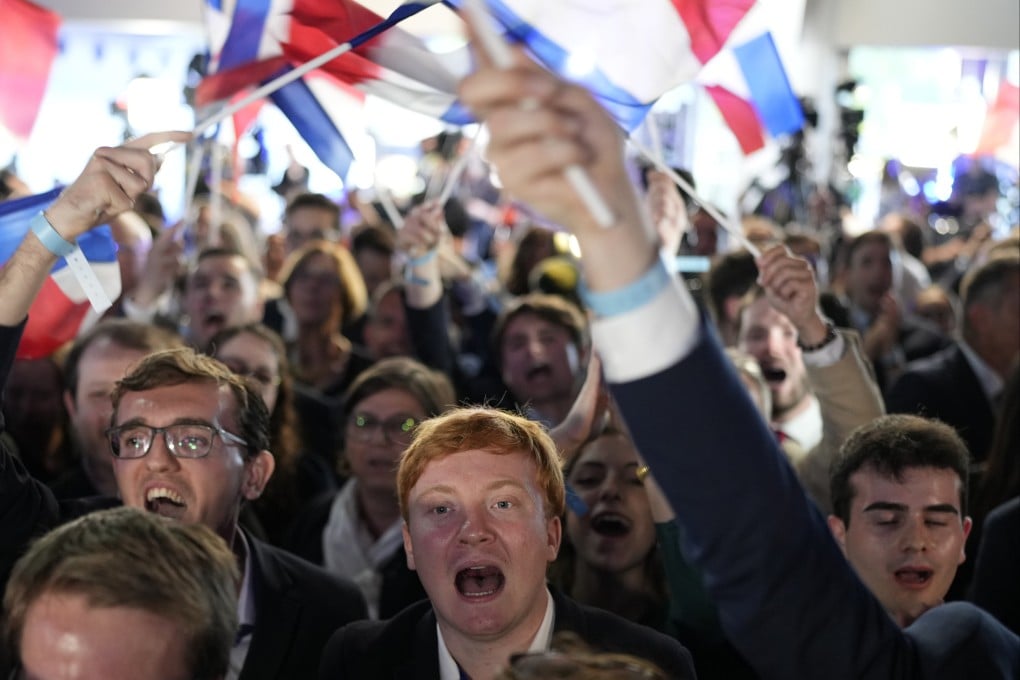Advertisement
Opinion | EU elections: far-right rose on the back of centrist parties’ empty promises
- Instead of offering policy solutions or addressing sceptics, traditional parties in Brussels have left a vacuum for the far-right to fill
Reading Time:3 minutes
Why you can trust SCMP

The European Union elections have crystallised a tectonic shift within the continent’s political landscape. Far-right parties have now entrenched themselves within the political mainstream, signalling a profound transformation that could shape the future of the EU for years to come.
Advertisement
When European Commission President Ursula von der Leyen stood in front of the microphones on Sunday night, objective observers rightfully wondered whether she was referring to an entirely different election. While she’s likely to stay in office, the message that socialists, liberals and her centre-right party should have received with the result is certainly not to continue the status quo.
Over the past decades, traditional parties have won enough votes to maintain a grip on power, but the issues that voters are concerned about – migration, the economy or security – have been ignored and often left to those who seek to provide simple answers to complex questions.
Since the last European Parliament elections in 2019, the political trajectory of several far-right parties has altered dramatically. The Alternative for Germany (AfD), a party which harbours neo-Nazis, has now established itself as a formidable force within the national and European political arena. In this election, it received 16 per cent of the vote – more than German Chancellor Olaf Scholz’s party.
The results reflect broader trends seen across Europe, where far-right parties have capitalised on widespread disenchantment with the traditional political establishment.
Advertisement
In France, Marine Le Pen’s National Rally has continued its upward momentum, winning 31.4 per cent of the vote on Sunday, more than double the share of French President Emmanuel Macron’s centrist alliance. There have been similar results in Austria and Italy. In Bulgaria, the Revival Party, on the extreme edge of the European right and considered pro-Putin, will enter the European Parliament for the first time.

Advertisement
